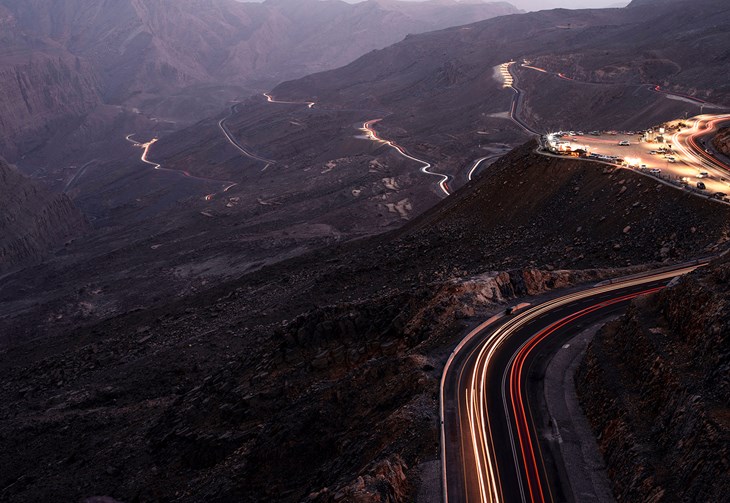Ensuring the future of the Hajar Mountains’ native flora and fauna is a key consideration as the Emirate launches new and exciting adventure attractions at the UAE’s highest peak
There can be no better symbol for the tourism aspirations of the Emirate of Ras Al Khaimah than Jebel Jais, the tallest mountain in the UAE. Reaching almost two kilometers in height, this imposing feature stands out against the impressive contours of the Hajar Mountains and – thanks to a new focus in tourism – has come to represent Ras Al Khaimah’s ambitions in this sector, both literally and figuratively.
In a literal sense, the mountain is the center of a new tourism paradigm for Ras Al Khaimah based on adventure, sustainability and eco-tourism, while metaphorically, its elevation as the UAE’s tallest point represents the heights that Ras Al Khaimah’s new tourism strategy aims to reach.
The new direction can be traced to the decision of His Highness Sheikh Saud bin Saqr Al Qasimi, UAE Supreme Council Member and Ruler of Ras Al Khaimah, to unlock the potential of the Emirate’s most stunning natural feature. The plan, as it evolved, was to exploit Ras Al Khaimah’s outstandingly beautiful and rugged topography and its cooler mountain climes to create a unique tourist offering far removed from the rolling dunes that are synonymous with the region. With temperatures at the summit of Jebel Jais often 100C cooler than those at sea level, the aim was to create a new center of tourism that would be attractive to visitors year-round, even during the otherwise inhospitable outdoor months of the UAE summer.
Central to the strategy is sustainability, which is a key priority for Ras Al Khaimah and encompasses the ongoing development of renewable energy sources, recycling and protecting the Emirate’s ecology. The commitment to this can be seen in the work to proliferate native flora at the summit of Jebel Jais and its surrounding areas, through to the policy being the underlying principle guiding the development of the mountain’s public areas.
One vital aspect of this direction is to ensure accurate documentation of Jebel Jais’ native plant species to create a database that will help assist with conservation measures, as well as provide information for nature lovers visiting the mountain. To this end, the Emirate is drawing on the expertise of Dr. Marina Tsaliki, Plant Conservationist and Research Specialist at Ras Al Khaimah Public Services Department’s Landscape Agency, who is tasked with identifying Jebel Jais’ variety of wild plants and making recommendations on how they can be protected and even utilized for the benefit of the community. As she explained:
“When I started working on Jebel Jais, the first thing I did was document the plants found there. I have now mapped them all and have established that the mountain has more than 100 different species, meaning that there is rich diversity. As far as we know, some species – such as its lily and iris – are unique to Jebel Jais and are not found anywhere else in the UAE. I’ve also found an abundance of herbal plants, aromatic plants and plants that are used for medicinal purposes. I’m currently looking at other mountaintops in the region just to confirm how unique Jebel Jais’s flora truly is.”
The expert botanist described how the plants and shrubs with medicinal properties that she has documented may have pharmaceutical applications and explained that she is currently assessing their viability for use in this area. She also discussed the wild types of popular fruit and nut she had found on the mountain, saying that these are very different to the cultivated versions grown for consumers.


 Heart Of RAK
Heart Of RAK



